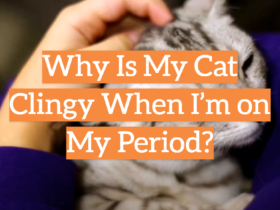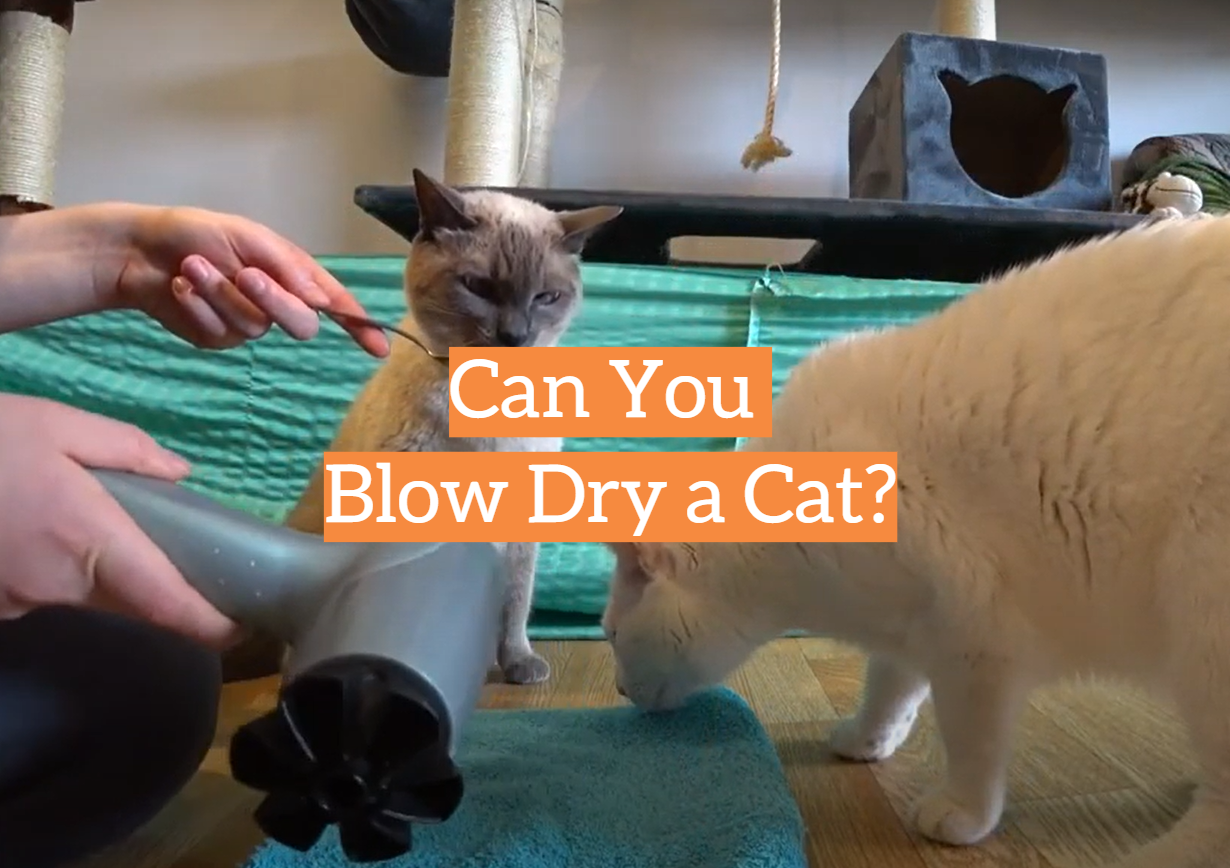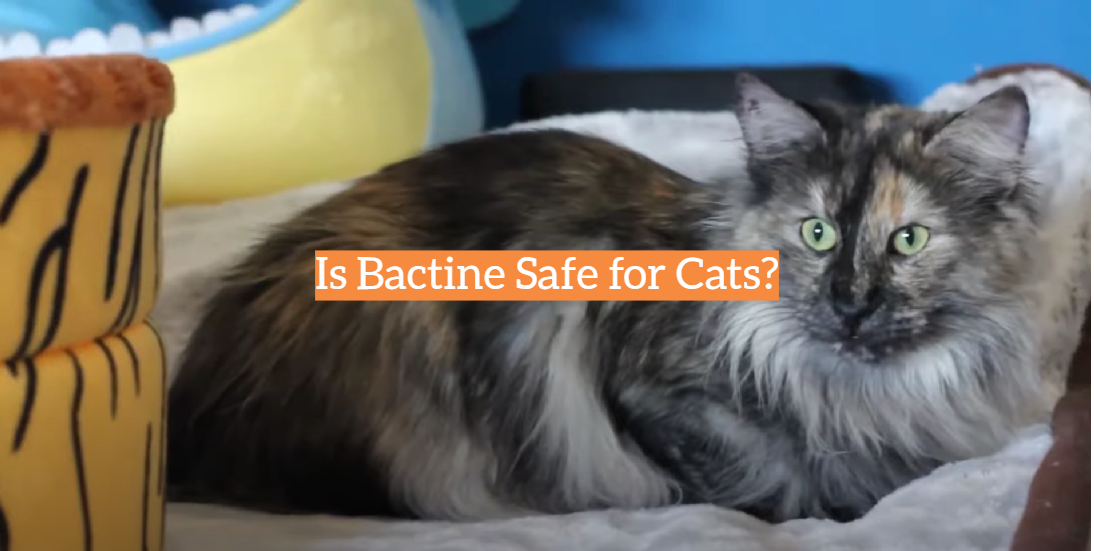Have you ever worried about your beloved feline friend getting a minor cut or scrape? Cleaning and treating the wound can be difficult — you certainly don’t want to cause them additional pain, but it’s also important that the wound is properly taken care of.
Luckily, this problem has an easy solution: Bactine! It’s one of the most trusted antiseptic products on the market, however many wonder whether its use is safe for cats.
In this blog post, we’ll explore all things related to using Bactine when tending to your cat’s minor injuries. Read on to learn more!
What Is Bactine?
Bactine is an over-the-counter antiseptic product that is generally used to clean and treat minor cuts, scrapes, and burns. It contains the active ingredients benzalkonium chloride and lidocaine hydrochloride.

Benzalkonium chloride kills bacteria and combats skin infections (such as ringworm), while lidocaine hydrochloride helps to reduce pain and itching from wounds. [2]
Pros Of Using Bactine On Cats
Bactine is generally a safe and effective antiseptic to use on cats. The active ingredients help to cleanse the wound and prevent infection, while also reducing pain, redness, and swelling.

Bactine can be used for all kinds of minor injuries, including cuts, scrapes, and burns.
Cons Of Using Bactine On Cats
Although Bactine is generally safe for cats, there are a few side effects to be aware of.
Is Bactine Safe For Cats?
Yes, Bactine is generally considered safe and effective for cats. However, as with any medication or antiseptic product, it’s important to follow the instructions carefully and consult your veterinarian if you have any concerns. Make sure to apply Bactine in a thin layer over the wound and never use more than what’s recommended.

Safety Concerns
When using any antiseptic product, it’s important to be aware of a few safety concerns. First and foremost, never use Bactine on open wounds or deeper injuries — these should be treated by your veterinarian.

Additionally, avoid getting the product in your cat’s eyes, nose, or mouth as this can cause irritation.
[1]How to Use Bactine on Your Cat?
When using Bactine on your cat, it’s important to follow the instructions carefully. First, gently clean the wound with warm water and a mild soap.

Then apply Bactine directly to the wound in a thin layer and allow it to dry for two to three minutes. Finally, cover the area with a bandage or gauze pad.
Alternatives to Using Bactine on Your Cat
If you’re not comfortable using Bactine on your cat, there are several alternatives. For example, hydrogen peroxide is a safe and effective antibacterial agent that can be used to clean minor wounds.

Additionally, many veterinarians recommend using an antibiotic ointment such as Neosporin or Polysporin to help keep the wound clean and promote healing.
How Often Can I Use Bactine on My Cat?
It’s generally recommended to use Bactine no more than two or three times per day. If your cat’s injury is not healing after a few days, be sure to consult your veterinarian.
Is Bactine Effective for Cleaning My Cat’s Wounds?
When tending to your cat’s minor injuries, make sure you follow the instructions carefully and consult your veterinarian if you have any concerns. Additionally, keep an eye out for potential allergic reactions or irritations that could occur as a result of using Bactine.
FAQ
Can I put Bactine on my cat’s cut?
Yes, Bactine can be used on minor cuts and scrapes. It’s important to keep the wound clean and dry in order to promote healing.
Is Bactine safe for kittens?
Yes, Bactine is generally considered safe for cats of all ages. However, it’s best to consult your veterinarian before using any medication or antiseptic product on a kitten.
Can I leave Bactine on my cat’s wound?
Yes, you can leave Bactine on your cat’s wound for up to two or three minutes. After that, it’s best to cover the area with a bandage or gauze pad.
Does Bactine kill bacteria?
Yes, Bactine contains benzalkonium chloride, which is an effective antibacterial agent and antiseptic. However, it should not be used on open wounds or deeper injuries– these should be treated by your veterinarian.
Is Bactine safe for pets?
Yes, Bactine is generally considered safe and effective for cats and other pets. However, it’s important to follow the instructions carefully and consult your veterinarian if you have any concerns.
Make sure to apply Bactine in a thin layer over the wound and never use more than what’s recommended. Additionally, avoid getting the product in your pet’s eyes, nose, or mouth as this can cause irritation.
Finally, never use Bactine on cats that are pregnant or nursing– it’s best to consult your veterinarian for an alternative solution in these cases.
What can you put on a cat wound?
In addition to Bactine, there are several other solutions you can use on cat wounds. For example, hydrogen peroxide is a safe and effective antibacterial agent that can be used to clean minor wounds.
Additionally, many veterinarians recommend using an antibiotic ointment such as Neosporin or Polysporin to help keep the wound clean and promote healing. Make sure to consult your veterinarian before using any medication or antiseptic product on your cat.
Is wound spray safe for cats?
Yes, most wound sprays are generally considered safe and effective for cats. However, it’s always best to consult your veterinarian before using any medication or antiseptic product on your cat.
Make sure to apply the spray in a thin layer over the wound and never use more than what’s recommended. Additionally, avoid getting the product in your pet’s eyes, nose, or mouth as this can cause irritation.
Finally, never use wound spray on cats that are pregnant or nursing– it’s best to consult your veterinarian for an alternative solution in these cases.
Is there an antiseptic spray for cats?
Yes, there are several antiseptic sprays that are safe and effective for cats. Bactine is one example of an antiseptic spray specifically designed for cats, but there are many other options available as well. Make sure to consult your veterinarian before using any medication or antiseptic product on your cat.
Additionally, avoid getting the product in your pet’s eyes, nose, or mouth as this can cause irritation. Finally, never use antiseptic spray on cats that are pregnant or nursing– it’s best to consult your veterinarian for an alternative solution in these cases.
What should I do if Bactine irritates my cat’s skin?
If your cat’s skin is irritated after using Bactine, it’s best to consult your veterinarian immediately. Skin irritation can be caused by an allergic reaction or other medical issue, so it’s important to have your pet evaluated by a professional.
Additionally, make sure to follow the instructions carefully when using Bactine and never use more than what’s recommended. Avoid getting the product in your pet’s eyes, nose, or mouth as this can also cause irritation.
What is the best way to apply Bactine?
The best way to apply Bactine is to spray a thin layer over the wound and leave it on for up to two or three minutes. Afterwards, cover the area with a bandage or gauze pad.
Make sure to follow the instructions carefully and avoid getting the product in your pet’s eyes, nose, or mouth as this can cause irritation.
Additionally, never use more than what’s recommended and avoid using Bactine on cats that are pregnant or nursing– it’s best to consult your veterinarian for an alternative solution in these cases.
What is the shelf life of Bactine?
The shelf life of Bactine depends on the specific product, but most products have an expiration date printed on the package. If you’re unsure, make sure to check with your veterinarian or pharmacist before using any expired product.
Additionally, avoid getting the product in your pet’s eyes, nose, or mouth as this can cause irritation. Finally, never use more than what’s recommended and avoid using Bactine on cats that are pregnant or nursing– it’s best to consult your veterinarian for an alternative solution in these cases.
What should I do if my cat won’t let me apply Bactine?
If your cat is resistant to having Bactine applied, it’s best to consult your veterinarian for advice. Your vet may recommend using a sedative or seeking professional help in order to safely and effectively treat the wound.
Additionally, make sure to follow the instructions carefully when using Bactine and never use more than what’s recommended. Avoid getting the product in your pet’s eyes, nose, or mouth as this can also cause irritation.
What happens if I use too much Bactine?
Using too much Bactine can cause irritation and discomfort for your cat. Additionally, it can increase the risk of a negative reaction to the product. Make sure to follow the instructions carefully when using Bactine and never use more than what’s recommended.
Avoid getting the product in your pet’s eyes, nose, or mouth as this can also cause irritation. Finally, never use Bactine on cats that are pregnant or nursing– it’s best to consult your veterinarian for an alternative solution in these cases.
Are there any other precautions I should take when using Bactine?
Yes, there are a few important precautions to take when using Bactine on your cat. First, make sure to consult your veterinarian before using any medication or antiseptic product on your pet.
Additionally, avoid getting the product in your pet’s eyes, nose, or mouth as this can cause irritation.
Finally, never use more than what’s recommended and avoid using Bactine on cats that are pregnant or nursing– it’s best to consult your veterinarian for an alternative solution in these cases.
How do I know if Bactine is right for my cat?
The best way to determine if Bactine is right for your cat is to consult a veterinarian. Your vet can assess the wound and provide advice on whether or not the product is suitable.
Additionally, make sure to follow the instructions carefully when using Bactine and never use more than what’s recommended. Avoid getting the product in your pet’s eyes, nose, or mouth as this can also cause irritation.
Finally, never use Bactine on cats that are pregnant or nursing– it’s best to consult your veterinarian for an alternative solution in these cases.
How often should I use Bactine?
The frequency of use depends on the severity and size of the wound. Generally, you should only apply Bactine to your cat’s wound once or twice a day for up to two or three minutes.
Afterwards, cover the area with a bandage or gauze pad. Make sure to follow the instructions carefully when using Bactine and never use more than what’s recommended.
Avoid getting the product in your pet’s eyes, nose, or mouth as this can also cause irritation. Finally, never use Bactine on cats that are pregnant or nursing– it’s best to consult your veterinarian for an alternative solution in these cases.
How do I store Bactine?
It’s important to store Bactine properly in order to maintain its effectiveness and prevent contamination. Make sure to keep the product in a cool, dry place away from direct sunlight.
Additionally, check the expiration date before use and consult your veterinarian or pharmacist before using any expired product.
Finally, make sure to follow the instructions carefully when using Bactine and never use more than what’s recommended. Avoid getting the product in your pet’s eyes, nose, or mouth as this can also cause irritation.
How do I know if the Bactine is working?
You may notice a reduction in inflammation and redness of the wound within a few days of using Bactine.
Additionally, the wound should heal more quickly than it would without treatment. If you don’t notice any improvement after a few days or have any concerns, be sure to consult your veterinarian.
Why is it important to use Bactine correctly?
It’s important to use Bactine correctly in order to ensure that your cat has the best possible experience with the product and gets the most out of its healing properties.
Make sure to follow the instructions carefully when using Bactine and never use more than what’s recommended.
Why is it important to consult your veterinarian before using Bactine?
It’s important to consult your veterinarian before using Bactine on your cat as they will be able to assess the wound and provide advice on whether or not the product is suitable for your pet.
Additionally, make sure to follow the instructions carefully when using Bactine and never use more than what’s recommended. Avoid getting the product in your pet’s eyes, nose, or mouth as this can also cause irritation.
Finally, never use Bactine on cats that are pregnant or nursing– it’s best to consult your veterinarian for an alternative solution in these cases.
Does Bactine have any side effects?
Bactine is generally considered to be a safe product for cats. However, it may cause some minor irritation at the site of application. If your cat exhibits signs of discomfort or pain, stop use immediately and contact your veterinarian for further guidance.
Additionally, make sure to follow the instructions carefully when using Bactine and never use more than what’s recommended.
Avoid getting the product in your pet’s eyes, nose, or mouth as this can also cause irritation. Finally, never use Bactine on cats that are pregnant or nursing– it’s best to consult your veterinarian for an alternative solution in these cases.
Does Bactine have any long-term effects on cats?
There is no evidence to suggest that Bactine has any long-term effects on cats when used as recommended. However, make sure to follow the instructions carefully when using Bactine and never use more than what’s recommended.
Avoid getting the product in your pet’s eyes, nose, or mouth as this can also cause irritation. Finally, never use Bactine on cats that are pregnant or nursing– it’s best to consult your veterinarian for an alternative solution in these cases.
Does Bactine work on deeper wounds?
Bactine is primarily used to clean and protect minor cuts, scrapes, burns, and other skin irritations. If the wound is deep or appears infected, it’s best to consult your veterinarian for further guidance.
Additionally, make sure to follow the instructions carefully when using Bactine and never use more than what’s recommended. Avoid getting the product in your pet’s eyes, nose, or mouth as this can also cause irritation.
Finally, never use Bactine on cats that are pregnant or nursing– it’s best to consult your veterinarian for an alternative solution in these cases.
Do I need to use a bandage with Bactine?
Bactine is not meant to be used as a replacement for traditional wound care such as bandaging. If the wound is deep or appears to become infected, it’s best to consult your veterinarian for further guidance.
Additionally, make sure to follow the instructions carefully when using Bactine and never use more than what’s recommended. Avoid getting the product in your pet’s eyes, nose, or mouth as this can also cause irritation.
Finally, never use Bactine on cats that are pregnant or nursing– it’s best to consult your veterinarian for an alternative solution in these cases.
Does Bactine have any antibacterial properties?
Yes, Bactine does contain some antibacterial properties. However, it is not an antibiotic and should not be used as a replacement for traditional wound care such as antibiotics prescribed by your veterinarian.
Additionally, make sure to follow the instructions carefully when using Bactine and never use more than what’s recommended.
Avoid getting the product in your pet’s eyes, nose, or mouth as this can also cause irritation. Finally, never use Bactine on cats that are pregnant or nursing– it’s best to consult your veterinarian for an alternative solution in these cases.
Do I need to use a bandage with Bactine?
Bactine is not meant to be used as a replacement for traditional wound care such as bandaging. However, it can help provide an additional layer of protection when applied directly onto the wound. Additionally, make sure to follow the instructions carefully when using Bactine and never use more than what’s recommended.
Avoid getting the product in your pet’s eyes, nose, or mouth as this can also cause irritation. Finally, never use Bactine on cats that are pregnant or nursing– it’s best to consult your veterinarian for an alternative solution in these cases.
Does Bactine need to be washed off after use?
No, Bactine does not need to be washed off after use. The product is designed to dry quickly and provide a protective layer against bacteria and fungus. Additionally, make sure to follow the instructions carefully when using Bactine and never use more than what’s recommended.
Avoid getting the product in your pet’s eyes, nose, or mouth as this can also cause irritation. Finally, never use Bactine on cats that are pregnant or nursing– it’s best to consult your veterinarian for an alternative solution in these cases.
Can I use Bactine around my cat’s eyes?
No, it is not recommended to use Bactine around your cat’s eyes. The product could cause irritation and potential damage when applied too near the eyes.
Additionally, make sure to follow the instructions carefully when using Bactine and never use more than what’s recommended.
Avoid getting the product in your pet’s eyes, nose, or mouth as this can also cause irritation. Finally, never use Bactine on cats that are pregnant or nursing– it’s best to consult your veterinarian for an alternative solution in these cases.
Are there any side effects when using Bactine on cats?
In most cases, the product is considered safe and there are no severe side effects reported. However, some cats may be allergic or sensitive to the product and experience itching or redness around the area of application.
Additionally, make sure to follow the instructions carefully when using Bactine and never use more than what’s recommended. Avoid getting the product in your pet’s eyes, nose, or mouth as this can also cause irritation. Finally, never use Bactine on cats that are pregnant or nursing– it’s best to consult your veterinarian for an alternative solution in these cases.
What should I do if my cat has a reaction to Bactine?
If you suspect that your cat is having a reaction to Bactine, contact your veterinarian right away. They can provide an appropriate treatment plan and assess the severity of the reaction.
Additionally, make sure to follow the instructions carefully when using Bactine and never use more than what’s recommended. Avoid getting the product in your pet’s eyes, nose, or mouth as this can also cause irritation.
Finally, never use Bactine on cats that are pregnant or nursing– it’s best to consult your veterinarian for an alternative solution in these cases.
Does Bactine work on other pets?
While it is primarily marketed for use with cats, Bactine can also be safely used with dogs and other small animals. However, make sure to follow the instructions carefully when using Bactine and never use more than what’s recommended.
Avoid getting the product in your pet’s eyes, nose, or mouth as this can also cause irritation. Finally, never use Bactine on cats that are pregnant or nursing– it’s best to consult your veterinarian for an alternative solution in these cases.
Does Bactine work on fleas and ticks?
No, Bactine does not work on fleas or ticks. It is designed to provide protection against bacteria and fungus. If your pet has a flea or tick infestation, it’s best to contact your veterinarian for an appropriate treatment plan.
Additionally, make sure to follow the instructions carefully when using Bactine and never use more than what’s recommended. Avoid getting the product in your pet’s eyes, nose, or mouth as this can also cause irritation.
Do I need a prescription for Bactine?
No, you do not need a prescription to buy Bactine. It is available over-the-counter at most pet supply stores and online retailers. However, make sure to follow the instructions carefully when using Bactine and never use more than what’s recommended.
Avoid getting the product in your pet’s eyes, nose, or mouth as this can also cause irritation. Finally, never use Bactine on cats that are pregnant or nursing– it’s best to consult your veterinarian for an alternative solution in these cases.
Does Bactine need to be applied regularly?
No, Bactine does not need to be applied on a regular basis. The product is designed for use when needed and should only be used as directed. Additionally, make sure to follow the instructions carefully when using Bactine and never use more than what’s recommended.
Avoid getting the product in your pet’s eyes, nose, or mouth as this can also cause irritation. Finally, never use Bactine on cats that are pregnant or nursing– it’s best to consult your veterinarian for an alternative solution in these cases.
Can I use Bactine as a preventative measure?
No, Bactine should not be used as a preventative measure. The product is designed for use when needed and should only be used as directed.
Additionally, make sure to follow the instructions carefully when using Bactine and never use more than what’s recommended.
Useful Video: Treating Open Wounds on Your Dog – PET | TAO Holistic Pet Products
Conclusion
In conclusion, there are a few important things to remember when deciding whether or not Bactine is safe for cats. First of all, Bactine contains benzalkonium chloride and lidocaine, both of which can potentially cause toxic reactions in cats if given in high doses or concentration.
Additionally, applying any type of topical medication directly to the skin may cause potential problems for cats due to their sensitive skin. Therefore, before using this medication on your cat it is best to seek professional advice from a veterinarian in order to make sure that your pet will not suffer any unintentional consequences from its use.
Ultimately, this decision needs to be made by you and your veterinarian in order to safely care for your beloved cats. Remember that while Bactine offers many benefits, it also has its risks – so make sure you consider them carefully before engaging with the product!
References:
- https://kittydevotees.com/2022/05/10/is-bactine-safe-for-cats/
- https://symboliamag.com/can-you-use-bactine-on-cats/










Leave a Reply